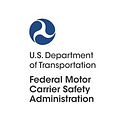May is National Moving Month and the start of the busy moving season. The Federal Motor Carrier Safety Administration is launching the agency’s Protect Your Move education campaign to raise consumer awareness of moving scams that can be rampant during this time of year. If you or your family are making a move across state lines, do it with confidence by doing a little research and planning before you start.
FMCSA encourages consumers to research and plan before moving by utilizing the agency’s free online resources, including:
- A handy moving checklist for before and during the move
- The Consumer Rights and Responsibilities pamphlet
- The Spot the Red Flags of Moving Fraud guide
- Tips for a successful move
You can protect what you own by understanding your rights and responsibilities before moving to a new place. You can start by making sure your mover is registered in FMCSA’s Mover Database. The database also shows whether a company is authorized by FMCSA to transport or arrange the transport of household goods. Not all registered companies are authorized for moving household goods.
Know the difference: moving company or moving broker
Make sure you know whether you are working with a moving company or a moving broker. A moving company, or mover, owns trucks and has staff that handles your move directly. Interstate movers must be registered with FMCSA and have a U.S. DOT number. A moving broker, in contrast, is an entity that arranges for the transportation of your goods. Moving brokers are sales teams that book your move and sell the job to a moving company that will do the actual physical move. They also must be registered with FMCSA, but a broker does not assume responsibility for, and is not authorized to transport, your household goods.
Make sure paperwork is in order
You should read and understand the contract terms and conditions for your move. Read and verify that the documents provided by your mover are complete before you sign them. Never sign a blank or incomplete estimate unless your final moving cost is determined after your move and based on the actual services provided. And do not sign a receipt if it contains language releasing or discharging your mover from liability.
The mover should provide you with these basic documents as part of your move:
The estimate should clearly describe in writing all charges for services the mover will perform. If there are more items to move, the mover must prepare a new estimate. Make sure the estimate is signed by the mover. Do not accept oral estimates.
The bill of lading is a contract between you and the mover and a receipt of your belongings. The bill of lading must be signed and dated by you and your mover at origin and destination.
The inventory list is the receipt showing each item you shipped and its condition. Be sure you receive a written copy of the inventory after your household goods are loaded, and that you agree with its description of your household goods’ condition.
Select the right liability and insurance
Liability means that movers are required to cover the cost of any goods that are lost or damaged during your move. However, there are two different levels of liability for interstate moves: Released Value Protection and Full Value Protection.
Full value protection provides the full replacement value of lost or damaged goods. This is the more comprehensive, but also more expensive, option for protecting your belongings. While moving, if any of your items are lost, destroyed, or damaged, your mover will offer to repair the item, replace it with a similar item, or make a cash settlement for the cost of the repair or the current market replacement value of the item.
If you decline full value protection, you are automatically covered with released value protection, which provides 60 cents per pound of coverage for all your household goods in case the unexpected happens. Under this option, the mover is responsible for no more than 60 cents per pound per article. For example, if your mover lost or damaged a 50-inch TV weighing 25 pounds, you would only receive $15 (60 cents x 25 pounds).
You may also purchase insurance from a third-party insurance company. Before purchasing third-party insurance, check your homeowner’s insurance policy to see if you’re already covered.
Supervise the process
Make sure you are available to watch the loading and unloading of your household goods. If you are not available, ask someone you know to act on your behalf.
To find more helpful resources and to learn about FMCSA’s efforts to stop household goods moving fraud, visit https://www.ProtectYourMove.gov.
